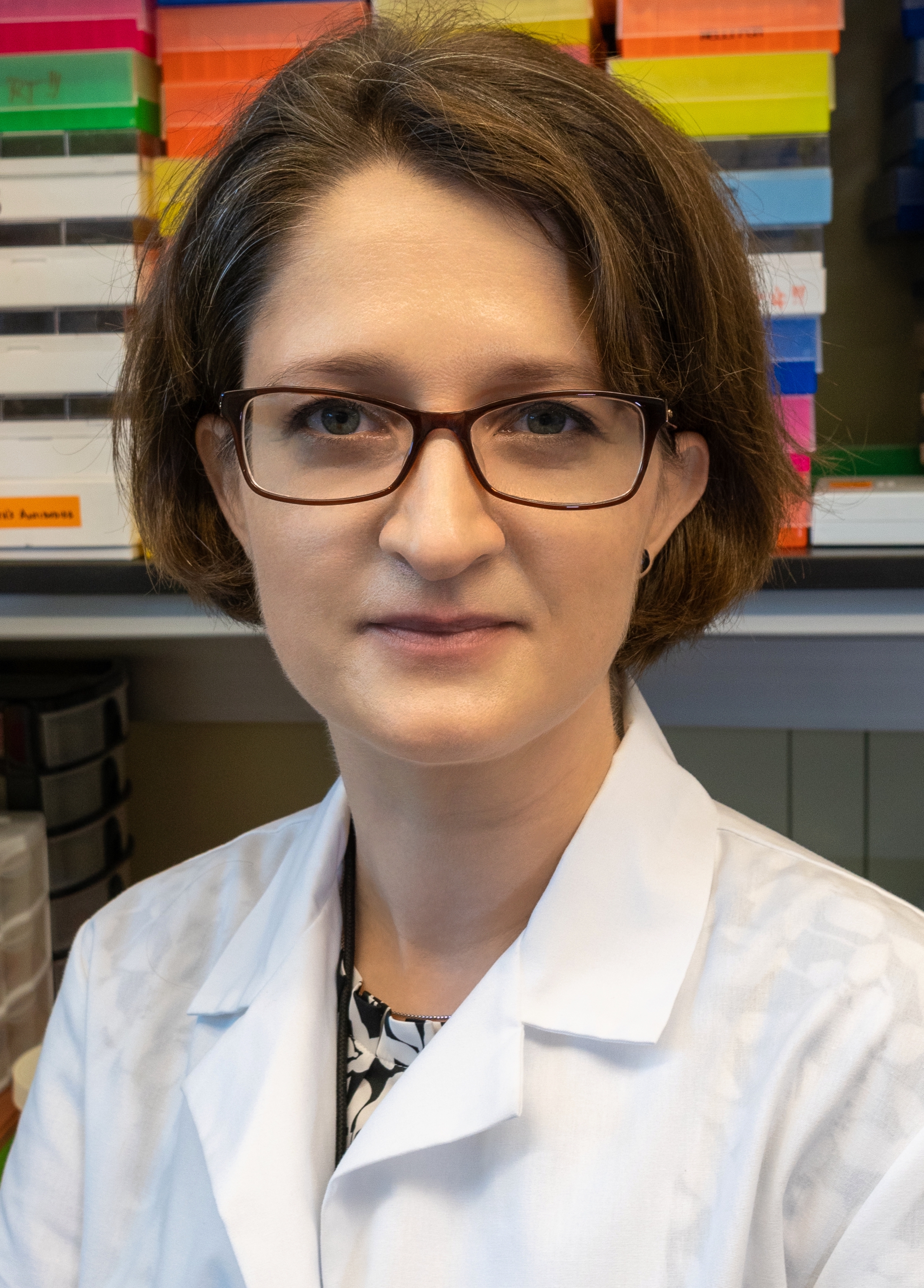Noemi Polgar was born and raised in Hungary. At her alma mater, the University of Szeged the main focus of her education was biotechnology and genetics. As an undergraduate and later graduate student, she had the opportunity to spend a total of over two years in the United States at the University of Hawaii, during which time she worked in the laboratory of Dr. Katalin Csiszar as a research intern. There she studied protein interactions of extracellular matrix enzymes, and their implications for breast cancer. This work later formed the topic of her dissertation as well. Following her graduation at the University of Szeged, Hungary, in 2008 she joined faculty of the Department of Medical Genetics at the University of Pecs, where she was contributing to research focusing on genetic susceptibility factors of common diseases, such as type 2 diabetes, and metabolic syndrome, as well as mutation screening for rare heritable diseases, such as type I neurofibromatosis and Rett syndrome.
In January 2012, Dr. Polgar left the University of Pecs to join Dr. Ben Fogelgren’s newly established lab at the University of Hawaii as a postdoctoral fellow. Working in the Fogelgren Lab, her research focused on targeted intracellular trafficking in epithelial tissue homeostasis, and morphogenesis as related to kidney development and disease.
In 2017, Dr. Polgar had the opportunity to start her own research laboratory, as one of the Junior Project Leaders for the University’s Diabetes COBRE (Centers for Biomedical Research Excellence) grant. Her work is focused on glucose uptake and its regulation in type-2 diabetes. As a natural extension of this research, she is also interested in fatty acid uptake and the pathomechanisms of intracellular lipid accumulation leading to insulin resistance. Noemi was promoted to Assistant Professor in April 2018.
Type-2 diabetes mellitus (T2DM) is growing public health burden in the U.S., and in Hawaii about 12% of the adult population, ~142,000 people have diabetes. T2DM is a metabolic disorder characterized by hyperglycemia, relative insulin deficiency and insulin resistance.
In insulin resistance, insulin-induced GLUT4 glucose transporter membrane delivery and subsequent glucose uptake is impaired in skeletal muscle but contraction-induced GLUT4 trafficking during exercise remains intact. Thus, muscle contraction-mediated glucose uptake offers a possible alternative to bypass insulin resistance and improve glucose homeostasis in insulin resistant states, such as pre-diabetes and type-2 diabetes. we are interested in identifying the mechanism responsible for the differential regulation of GLUT4 trafficking in response to insulin and contraction in skeletal muscle.
Exercise is an effective means of improving blood glucose control in type-2 diabetes. Not only does it increase glucose uptake through insulin-independent mechanisms in the skeletal muscle but it also improves insulin sensitivity for up to 48 hours post-exercise. We are also interested in how exercise stimulates the skeletal muscle to communicate with other tissues to promote an increased sensitivity to insulin. We hope to lay the foundation for the therapeutic administration of skeletal muscle-derived factors to treat type-2 diabetes, a disease that disproportionately affects ethnic/minority communities, including Native Hawaiians and Other Pacific Islanders.
